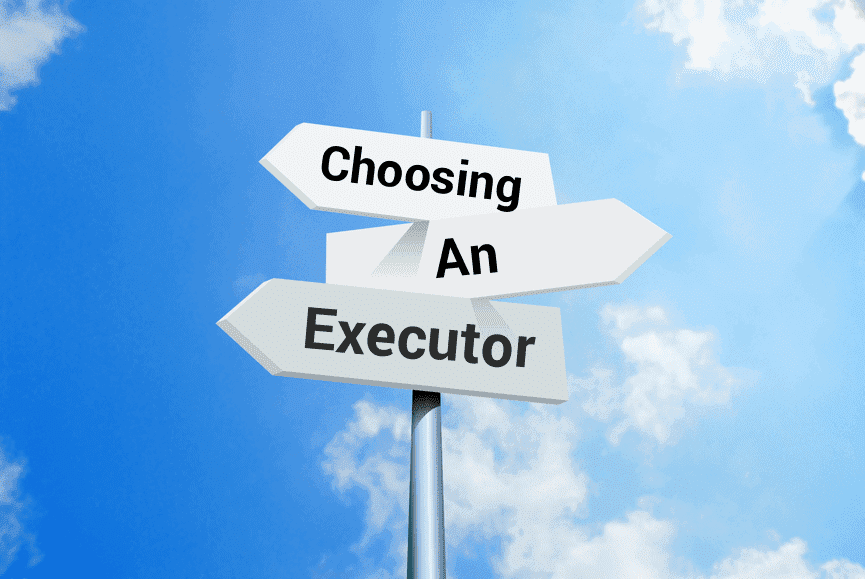Everything You Need To Know About Choosing An Executor For Your Will

By Nicholas Marouchak
24 August 2020 - 3 min read

Your executor is nominated under your Will and is responsible for making sure all your wishes in your Will actually happen.
When you pass away, your executor will be responsible for organising all the administrative matters of your estate. This includes things such as:
- Locating your Will and communicating with your family and beneficiaries.
- Applying to the court for probate. This is necessary to get legal permission for the executor to access all your assets such as real estate, bank accounts, super, shares, etc.
- Once the executor has obtained the legal right to access your assets (through probate), your executor then collects all your assets and pays off your debts.
- They then distribute your assets to the beneficiaries named in your Will. If you have nominated a specific asset to a beneficiary, the executor will transfer that asset to them. Otherwise, the executor will usually sell off all your assets and divide the proceeds between the beneficiaries according to their percentage entitlements.
Who Can Be Executor?
Anyone over 18, of sound mind, can be your executor.
Your executor does not need any special qualification or skill.
Your executor does not even need to live in Australia (although it’s a good idea for practical reasons).
Your executor can engage professionals such as lawyers and accountants to help them if they get stuck or need extra assistance.
It’s a good idea that your executor be someone that’s good with paperwork.
It’s a good idea to appoint a close family member such as your partner or children as your executor (more on that below).
Your executor does not need to sign anything. You simply nominate them under your Will and that’s it. However, it’s a good idea to let your executor know that you have chosen them.
Nominating a Backup Executor
Under your Will, you have the option to appoint a backup executor in case the person you picked first cannot act when you pass away.
While you don’t have to nominate a backup executor, it’s a good idea.
Your Will is still perfectly valid if any of the executors you’ve chosen cannot or are unable act when the time comes. If that happens, then one of the beneficiaries under your Will needs to apply to the court to effectively take on the role of executor.
Appointing More Than One Executor
You can appoint as many people as you like to act as executors.
However, if you appoint more than one person, all your executors have to act jointly. This means they need to cooperate and agree on everything together. That’s why it’s best not to appoint too many people because that could create difficulties in people agreeing.
Generally, one or two executors is enough. However, we recommend no more than four.
Making Your Partner or Children as Executor
Generally speaking, it’s a good idea to appoint the person(s) who’s receiving the majority of your assets as executor(s) (provided they are up for the task).
Most people appoint their partner as their first choice as executor.
Your partner will likely be quite distressed at the time of your death. However, at least your partner has the option of deciding whether or not they want to act. As executor, they can engage lawyers to assist with the administrative work. If your partner is in too much grief and simply can’t do it, they can say no and let the backup executor do it.
You may also wish to appoint some of your children as executor, whether as first pick or as a backup.
What Happens If the Executor Can’t Do It?
At the time of your death, the executor has the right to say no. If your executor has passed away before you or if they are too unwell to act, that is also okay.
If the executor you’ve picked first can’t do it or is unable to do it, your backup executor steps in.
Create Your Will Today
Estates Plus allows you to create a legally binding Will. Our Wills are valid all around Australia.
